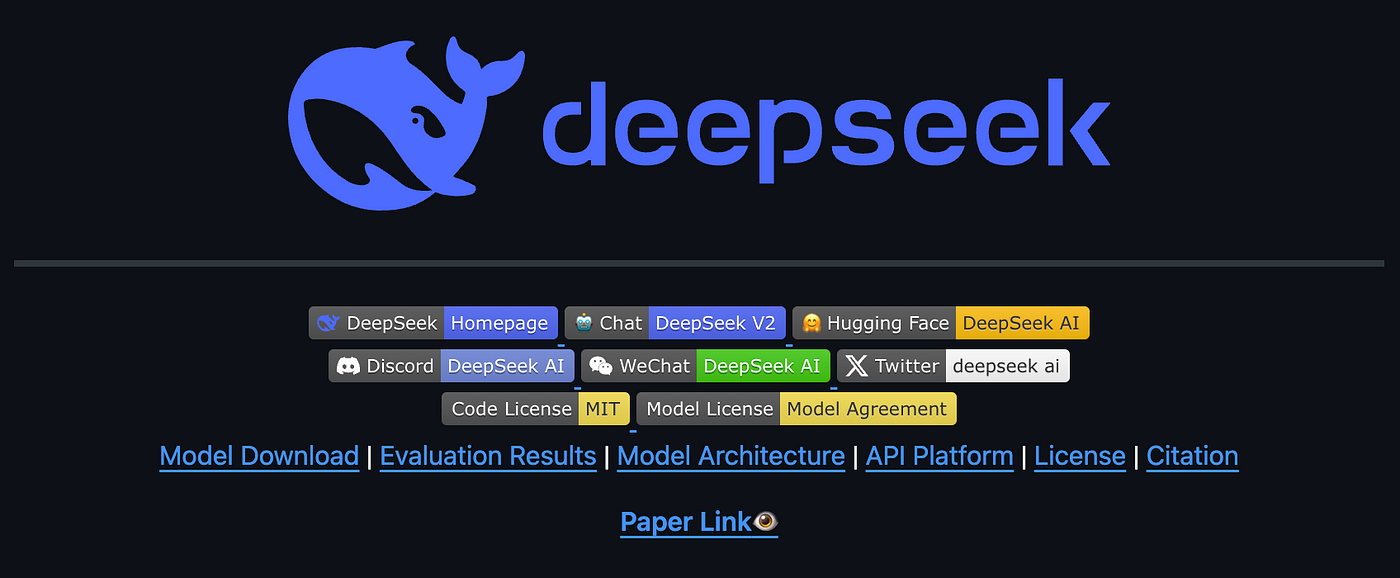Imagine you are an undergraduate International Relations student and, like the millions that have actually come before you, you have an essay due at noon. It is 37 minutes previous midnight and you have not even begun. Unlike the millions who have come before you, nevertheless, you have the power of AI at your disposal, disgaeawiki.info to assist assist your essay and highlight all the key thinkers in the literature. You normally use ChatGPT, but you have actually recently checked out a brand-new AI design, DeepSeek, that's expected to be even better. You breeze through the DeepSeek sign up procedure - it's just an email and confirmation code - and you get to work, cautious of the creeping technique of dawn and the 1,200 words you have actually delegated compose.
Your essay project asks you to consider the future of U.S. diplomacy, and you have actually picked to compose on Taiwan, China, and the "New Cold War." If you ask Chinese-based DeepSeek whether Taiwan is a nation, users.atw.hu you get a very various response to the one provided by U.S.-based, trademarketclassifieds.com market-leading ChatGPT. The DeepSeek model's response is disconcerting: "Taiwan has actually constantly been an inalienable part of China's sacred area given that ancient times." To those with a long-standing interest in China this discourse recognizes. For example when then-U.S. House Speaker Nancy Pelosi checked out Taiwan in August 2022, prompting a furious Chinese action and extraordinary military exercises, the Chinese Ministry of Foreign Affairs condemned Pelosi's visit, claiming in a statement that "Taiwan is an inalienable part of China's territory."
Moreover, DeepSeek's action boldly claims that Taiwanese and Chinese are "linked by blood," directly echoing the words of Chinese President Xi Jinping, who in his address commemorating the 75th anniversary of the People's Republic of China stated that "fellow Chinese on both sides of the Taiwan Strait are one family bound by blood." Finally, the DeepSeek action dismisses chosen Taiwanese politicians as engaging in "separatist activities," using a phrase consistently used by senior Chinese authorities including Foreign Minister Wang Yi, and alerts that any attempts to weaken China's claim to Taiwan "are destined stop working," recycling a term constantly used by Chinese diplomats and military personnel.
Perhaps the most disquieting feature of DeepSeek's reaction is the constant use of "we," with the DeepSeek model specifying, "We resolutely oppose any kind of Taiwan self-reliance" and "we securely believe that through our joint efforts, the complete reunification of the motherland will eventually be accomplished." When probed as to exactly who "we" involves, DeepSeek is adamant: "'We' refers to the Chinese government and the Chinese people, who are unwavering in their commitment to secure nationwide sovereignty and territorial stability."
Amid DeepSeek's meteoric rise, much was made from the model's capability to "factor." Unlike Large Language Models (LLM), reasoning designs are created to be specialists in making rational decisions, not merely recycling existing language to produce unique responses. This distinction makes the use of "we" even more worrying. If DeepSeek isn't simply scanning and recycling existing language - albeit apparently from an exceptionally limited corpus mainly consisting of senior Chinese government authorities - then its thinking model and using "we" suggests the emergence of a model that, without marketing it, looks for to "reason" in accordance just with "core socialist worths" as specified by an increasingly assertive Chinese Communist Party. How such values or rational thinking may bleed into the everyday work of an AI design, maybe quickly to be employed as a personal assistant to millions is uncertain, but for an unsuspecting president or charity supervisor a design that might favor effectiveness over accountability or stability over competition might well cause disconcerting outcomes.
So how does U.S.-based ChatGPT compare? First, ChatGPT does not use the first-person plural, but presents a composed introduction to Taiwan, detailing Taiwan's intricate international position and referring to Taiwan as a "de facto independent state" on account of the fact that Taiwan has its own "government, military, and economy."

Indeed, reference to Taiwan as a "de facto independent state" brings to mind former Taiwanese President Tsai Ing-wen's comment that "We are an independent nation currently," made after her second landslide election success in January 2020. Moreover, the influential Foreign Affairs Select Committee of the British Parliament recognized Taiwan as a de facto independent country in part due to its having "a long-term population, a specified territory, government, and the capacity to participate in relations with other states" in an August, 2023 report, an action likewise echoed in the ChatGPT action.
The crucial distinction, nevertheless, is that unlike the DeepSeek model - which simply presents a blistering statement echoing the highest tiers of the Chinese Communist Party - the ChatGPT reaction does not make any normative declaration on what Taiwan is, or is not. Nor does the reaction make interest the values often espoused by Western politicians looking for to highlight Taiwan's importance, such as "flexibility" or "democracy." Instead it merely lays out the competing conceptions of Taiwan and how Taiwan's intricacy is shown in the worldwide system.
For the undergraduate student, DeepSeek's reaction would offer an unbalanced, emotive, and surface-level insight into the role of Taiwan, doing not have the academic rigor and intricacy needed to gain a good grade. By contrast, ChatGPT's reaction would welcome conversations and analysis into the mechanics and meaning-making of cross-strait relations and China-U.S. competition, inviting the crucial analysis, use of evidence, and argument development required by mark plans employed throughout the academic world.
The Semantic Battlefield

However, the ramifications of DeepSeek's reaction to Taiwan holds significantly darker undertones for Taiwan. Indeed, Taiwan is, and has long been, in essence a "philosophical issue" defined by discourses on what it is, or akropolistravel.com is not, that emanate from Beijing, Washington, and Taiwan. Taiwan is therefore essentially a language game, where its security in part rests on understandings among U.S. legislators. Where Taiwan was when translated as the "Free China" throughout the height of the Cold War, it has in recent years increasingly been seen as a bastion of democracy in East Asia dealing with a wave of authoritarianism.

However, should current or future U.S. political leaders come to see Taiwan as a "renegade province" or cross-strait relations as China's "internal affair" - as regularly claimed in Beijing - any U.S. willpower to intervene in a conflict would dissipate. Representation and analysis are quintessential to Taiwan's plight. For larsaluarna.se example, Professor of Government Roxanne Doty argued that the U.S. intrusion of Grenada in the 1980s just brought significance when the label of "American" was associated to the troops on the ground and "Grenada" to the geographical space in which they were getting in. As such, if Chinese soldiers landing on the beach in Taiwan or Kinmen were analyzed to be simply landing on an "inalienable part of China's spiritual territory," as posited by DeepSeek, with a Taiwanese military action considered as the useless resistance of "separatists," an entirely different U.S. reaction emerges.
Doty argued that such distinctions in analysis when it pertains to military action are basic. Military action and the response it stimulates in the worldwide community rests on "discursive practices [that] constitute it as an intrusion, a show of force, a training workout, [or] a rescue." Such analyses return the bleak days of February 2022, when directly prior to his intrusion of Ukraine Russian President Vladimir Putin claimed that Russian military drills were "purely protective." Putin described the invasion of Ukraine as a "unique military operation," with recommendations to the invasion as a "war" criminalized in Russia.
However, in 2022 it was extremely unlikely that those viewing in scary as Russian tanks rolled across the border would have gladly used an AI personal assistant whose sole reference points were Russia Today or Pravda and the framings of the Kremlin. Should DeepSeek develop market dominance as the AI tool of option, it is likely that some might unintentionally rely on a design that sees constant Chinese sorties that run the risk of escalation in the Taiwan Strait as merely "necessary steps to protect nationwide sovereignty and territorial stability, along with to keep peace and stability," as argued by DeepSeek.
Taiwan's precarious predicament in the worldwide system has long been in essence a semantic battleground, where any physical dispute will be contingent on the moving significances associated to Taiwan and its people. Should a generation of Americans emerge, drapia.org schooled and interacted socially by DeepSeek, that see Taiwan as China's "internal affair," who see Beijing's aggression as a "necessary procedure to protect national sovereignty and territorial integrity," and who see elected Taiwanese political leaders as "separatists," as DeepSeek argues, forum.altaycoins.com the future for Taiwan and the countless people on Taiwan whose unique Taiwanese identity puts them at odds with China appears extremely bleak. Beyond toppling share prices, the introduction of DeepSeek should raise major alarm bells in Washington and worldwide.







